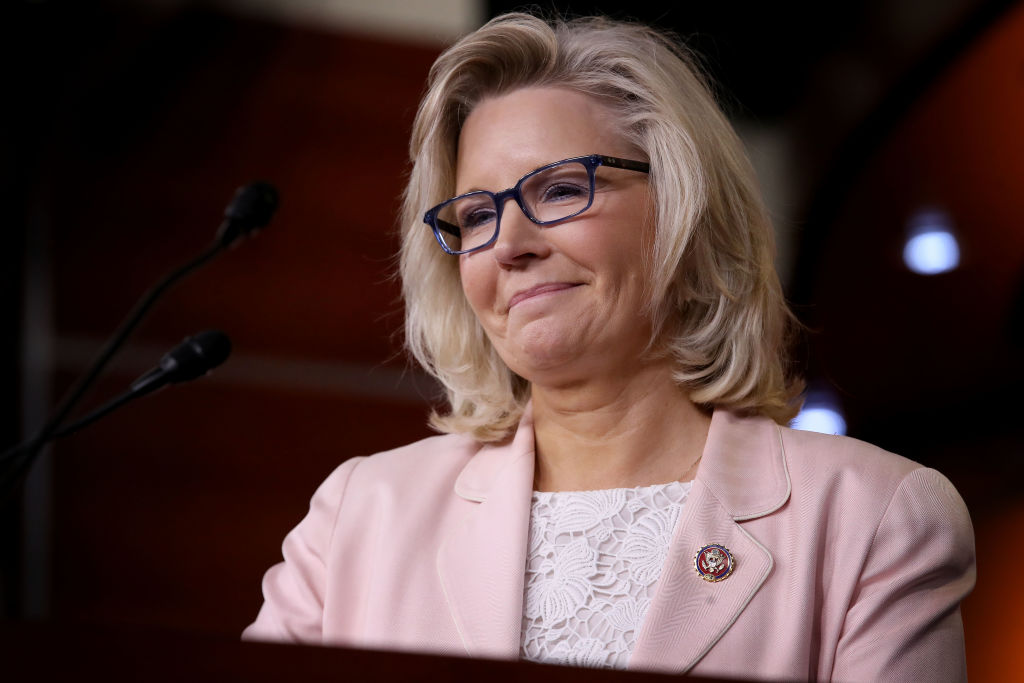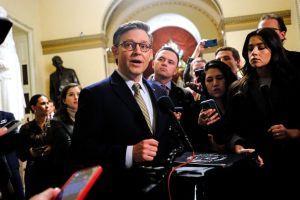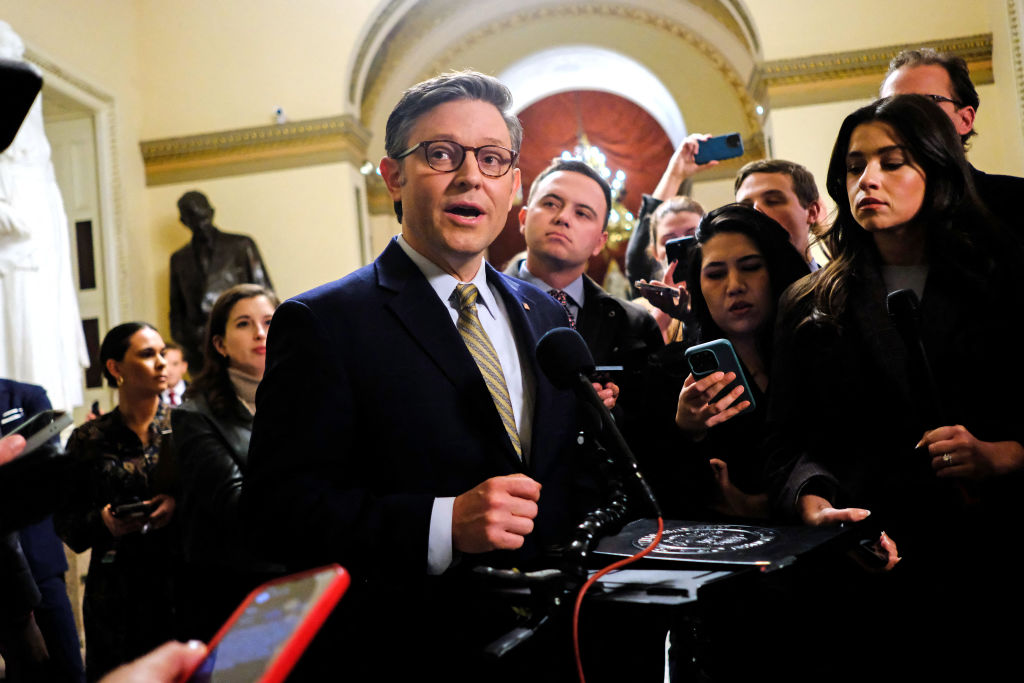How the RNC censure backfired
She miscalculated. By now, it’s obvious that the censure of Liz Cheney and Adam Kinzinger, led by the Republican National Committee and its chair Ronna McDaniel, for their role in the House January 6 committee did not quite land the way its architects might have hoped.
To recap, last Friday, the RNC passed a sharply worded resolution that accused Cheney and Kinzinger of participating in the “persecution of ordinary citizens engaged in legitimate political discourse.” Since then, senior lawmakers have either been critical of the RNC resolution or, as in the case of House minority leader Kevin McCarthy, tried their hardest to avoid any discussion of the matter. Explicit support for the censure has been hard to come by.
Senator Todd Young of Indiana said: “Republicans must make absolutely clear that [those at the Capitol on January 6] is a fringe group.”
Senator John Cornyn of Texas said: “I think Republicans ought to stop shooting at Republicans, including the chairman.”
Senator Mitt Romney of Utah, who also happens to be McDaniel’s uncle, said that the resolution “could not have been a more inappropriate message.”
Mitch McConnell was notably blunt in his criticism of the resolution. He said that the RNC should not be “singling out members of our party who may have different views from the majority” and used the opportunity to describe January 6 as “a violent insurrection for the purpose of trying to prevent the peaceful transfer of power after a legitimately certified election from one administration to the next. That’s what it was.”
The RNC shot back yesterday. “Outside the DC bubble, our grassroots are very supportive of the decision to hold Cheney and Kinzinger accountable,” RNC press chief Danielle Alvarez told the Washington Post.
Yet beyond that firm public line lie tacit acknowledgments that the RNC had hoped to find a more receptive audience for its attack on Cheney and Kinzinger. Just look, for instance, at the off-the-record, buck-passing briefing to CNN reporters Jeff Zeleny and Gabby Orr, with “a person involved in the process” now claiming that the most inflammatory parts of the statement were not included in its early drafts. Excuse making from other RNC members includes claims that the final text landed late at night and went to their email’s spam folders. These are not the things you tell reporters when you’re winning.
But does this intriguing RNC episode mean that power has shifted decisively away from the party’s Trumpist faction? No. Once again, the Republican Party eschews easy characterization. The claim — made by both Trump’s biggest boosters and his most ardent critics — that the party is his personal play thing has been confounded by recent events. But nor can it be convincingly argued that the GOP has moved on.
Definitive victory for either side in the great Republican Civil War will never happen because it isn’t really a battle between two sides, but rather a complicated tangle: overlapping coalitions, unlikely alliances, ideological feuds and personal vendettas. The RNC spat is only the latest reminder of that reality. It is a messy, sometimes ugly, endlessly fascinating story. And one that won’t offer up the clear-cut ending for which some are so desperate.
*** Sign up to receive the DC Diary in your inbox on weekdays ***
Can Biden keep his Nord Stream promise?
The president’s unequivocal pledge that a Russian invasion of Ukraine would mean that the Nord Stream 2 pipeline between Russia and Germany would be shut down was rightly welcomed as a blunt indication of the consequences of military escalation.
“If Russia invades — that means tanks or troops crossing the border of Ukraine again — then there will be no longer a Nord Stream 2. We will bring an end to it,” Biden said on Monday.
The president had better have meant what he said and have a plan to make good on that promise. Otherwise the unequivocal warning about the natural gas pipeline that connects Russia and Germany under the North Sea threatens to become a serious headache for the White House.
German Chancellor Olaf Scholz has the power to close the pipeline, but he has not been as clear cut as the White House. Perhaps private assurances from the Germans mean Biden feels confident delivering such an ironclad warning. But the fact remains that the main act of retaliation outlined by Biden in the event of invasion is something over which he has no direct control. Either way, the hope will be that the warning proves to be enough of a deterrent that these considerations remain theoretical.
Donald Trump’s data dumps
During the Trump years, staff in the White House residence would sometimes discover printed paper clogging the toilet. And they had reason to believe the president was the person responsible.
This tidbit comes from New York Times reporter Maggie Haberman, whose book Confidence Man will be published later this year and promises to be one of the few titles about the last presidency actually worth reading.
Perhaps the White House’s clogged toilets explain Trump’s frequent complaints that environmental regulations were getting in the way of the powerful flush that the American people deserve.
Trump has responded, calling Haberman’s bathroom claims baseless. He said in a statement that a “fake story, that I flushed papers and documents down a White House toilet, is categorically untrue and simply made up by a reporter in order to get publicity for a mostly fictitious book.”
What you should be reading today
Bernard-Henri Lévi: Sacrificing the Uighurs to the Olympics
Matt Purple: A working-class liberty movement
Alessandra Bocchi: ‘Harder than heroin’: America’s silent benzo epidemic
Damon Linker, The Week: Life is not a simulation
Scott Lincicome, The Dispatch: This ‘libertarian moment’ could be more lasting
Philip Wegmann, RealClearPolitics: DC used to love Enes Kanter Freedom. Does Biden?
Poll watch
President Biden Job Approval
Approve: 39.8 percent
Disapprove: 54.4 percent
Net approval: -14.6 (RCP Average)
America’s views on the pandemic
Voters who agree we should learn to live with the virus and get back to normal: 49 percent
Voters who think we need to do more to vaccinate, test and wear masks: 43 percent
(Yahoo News/YouGov)

























